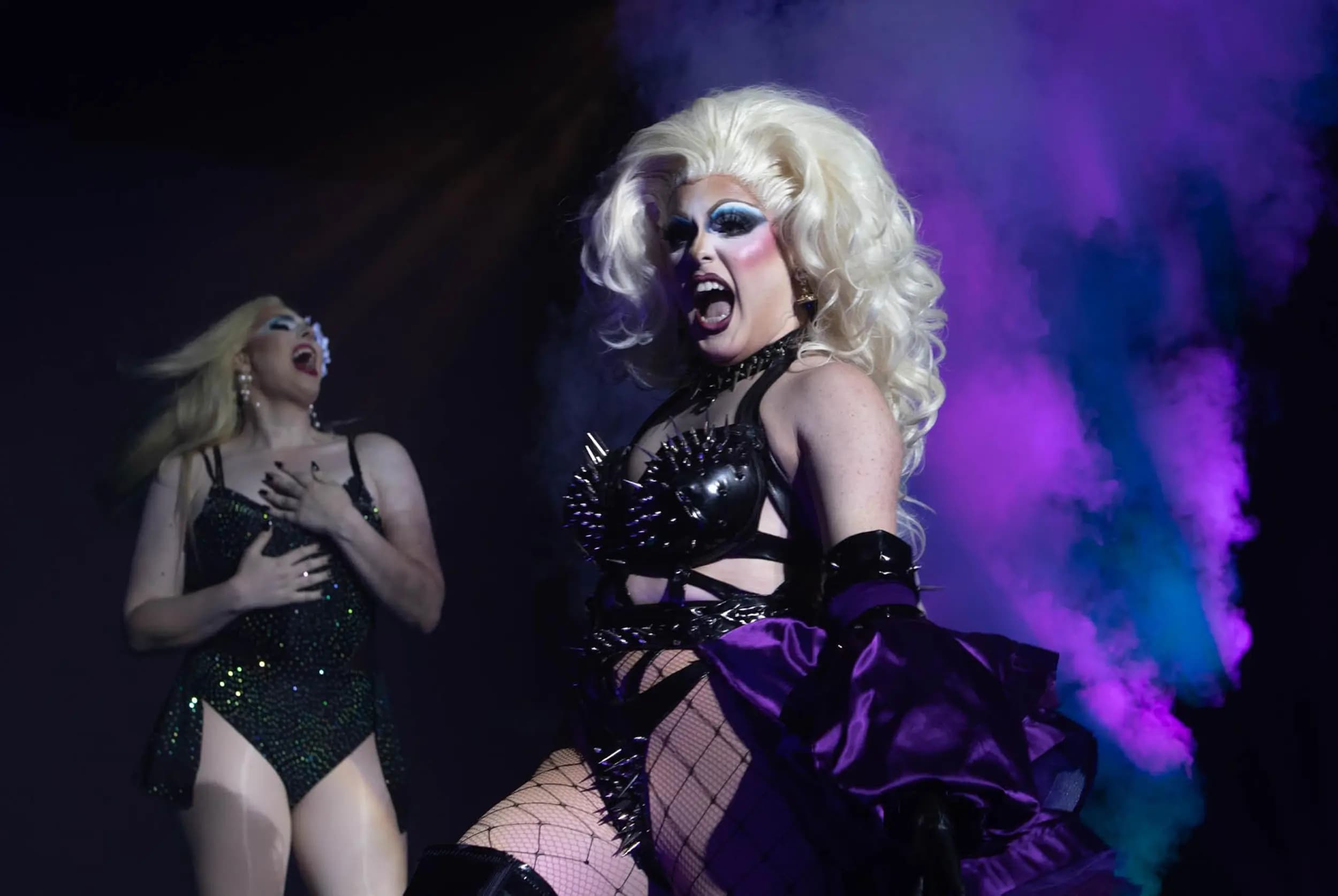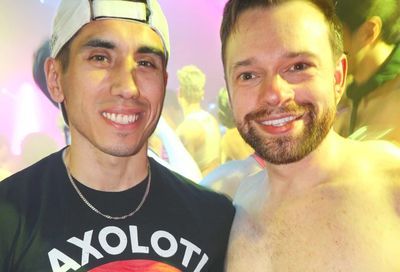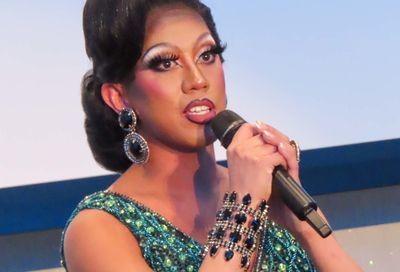Pixar Restores Censored Same-Sex Kiss In “Lightyear”
The move comes in response to parent company Disney's lackluster response to Florida's "Don't Say Gay" bill.

Pixar has restored a same-sex embrace and kiss that was originally excised from the upcoming Lightyear film, a prequel to the Toy Story series. The move followed backlash against parent company Disney’s initial response to anti-LGBTQ legislation in Florida.
The show of affection occurs between Hawthorne, a character voiced by Uzo Aduba, and another woman. The characters’ relationship itself was never called into question during production, but a kiss between the characters was removed before being reinstated last week, as first reported by Variety.
The kiss put back in the film in response to criticism of Disney CEO Bob Chapek’s response to Florida’s “Parental Rights in Education” bill, dubbed the “Don’t Say Gay” bill by detractors.
The bill explicitly bans teacher- or school-led discussions of LGBTQ-related topics up to the third grade, and requires that any conversations in older grades be age-appropriate and “developmentally appropriate.” Critics say that, in practice, schools and individual teachers afraid of being sued by angry parents will preemptively censor student speech or LGBTQ-related content, possibly even at the middle and high school levels. Gov. Ron DeSantis is expected to sign the bill into law in the coming weeks.
Disney, and Chapek, specifically, were barraged with criticism after refusing to speak out against the bill, which critics believe will chill the speech of LGBTQ students or students with same-sex parents.
Instead, the company issued a statement sidestepping the issue while issuing a statement of support for its LGBTQ employees. Chapek later defended that decision, arguing that public statements seldom change people’s minds and can be “weaponized” by those on either side of the debate.
But LGBTQ employees, especially those at Pixar, a Disney subsidiary, criticized that stance, with Pixar employees going so far as to accuse the company of censoring same-sex content or characters. Disney employees then engaged in a series of walkouts to protest what they saw as a failure on the part of the company to stand up for LGBTQ employees who would be affected by the bill.
Chapek apologized for the company’s stance, saying in a statement sent to employees that he was sorry for the pain caused by Disney’s inaction and vowing to be a “stronger ally in the fight for equal rights.”
Disney has since announced it has suspended political giving in Florida for the time being. Meanwhile, Chapek has said the company will increase its support for pro-LGBTQ advocacy groups and “reassess” the company’s overall policy regarding political donations — and any criteria that would help in determining what that policy would look like — going forward.
According to Variety, most Hollywood-produced feature animation has been generally reticent about depicting same-sex affection.
For G- or PG-rated animated movies, in particular, same-sex affection is rarely shown, and if LGBTQ identity is acknowledged, it’s only in passing, as in the 2020 Pixar film Onward, where a one-eyed police officer mentions her girlfriend, and 2019’s Toy Story 4, where two moms are shown hugging their child goodbye at kindergarten.
While even those brief mentions are enough to provoke the ire of groups like One Million Moms, they are so fleeting it’s uncertain whether general audiences even register such allusions to LGBTQ representation.
The most overtly LGBTQ film from Pixar was a 2020 short film Out, which depicted a gay man struggling with telling his parents he’s gay. It was released on Disney Plus as part of Pixar’s SparkShorts program, which allowed the studio’s staff to work on personal projects with limited studio oversight while exploring unique story ideas and animation techniques.
According to multiple former Pixar employees who spoke with Variety, employees within the company have tried for years to incorporate LGBTQ identity into storytelling in various ways, without necessarily trumpeting it, only to have their efforts thwarted.
The employees claimed small signifiers of LGBTQ identity have been censored, and that a rainbow sticker placed in the window of a shop was removed from one film because executives deemed it too “distracting.”
As such, the decision to restore the same-sex kiss in Lightyear is significant, if only because of how the inclusion will be received once the film is released, as well as what that could mean for future Pixar films.
Support Metro Weekly’s Journalism
These are challenging times for news organizations. And yet it’s crucial we stay active and provide vital resources and information to both our local readers and the world. So won’t you please take a moment and consider supporting Metro Weekly with a membership? For as little as $5 a month, you can help ensure Metro Weekly magazine and MetroWeekly.com remain free, viable resources as we provide the best, most diverse, culturally-resonant LGBTQ coverage in both the D.C. region and around the world. Memberships come with exclusive perks and discounts, your own personal digital delivery of each week’s magazine (and an archive), access to our Member's Lounge when it launches this fall, and exclusive members-only items like Metro Weekly Membership Mugs and Tote Bags! Check out all our membership levels here and please join us today!
























You must be logged in to post a comment.